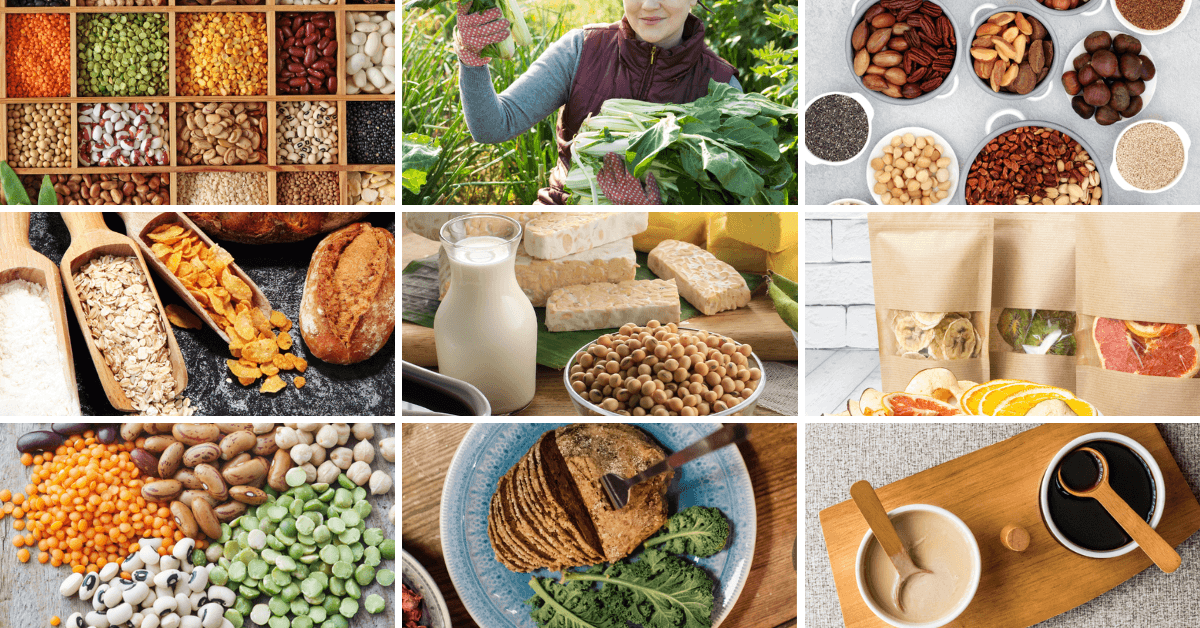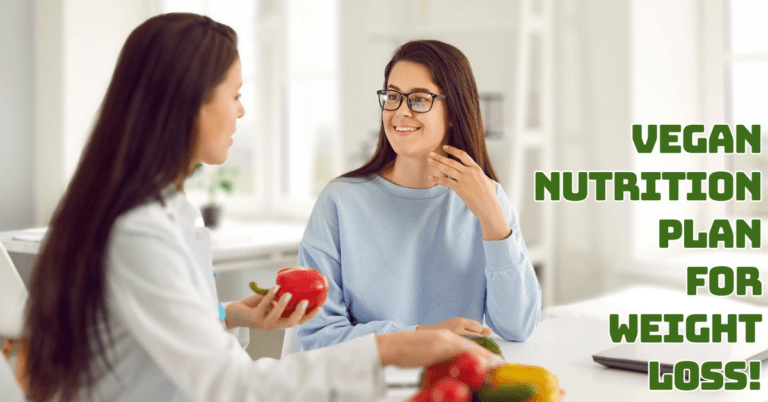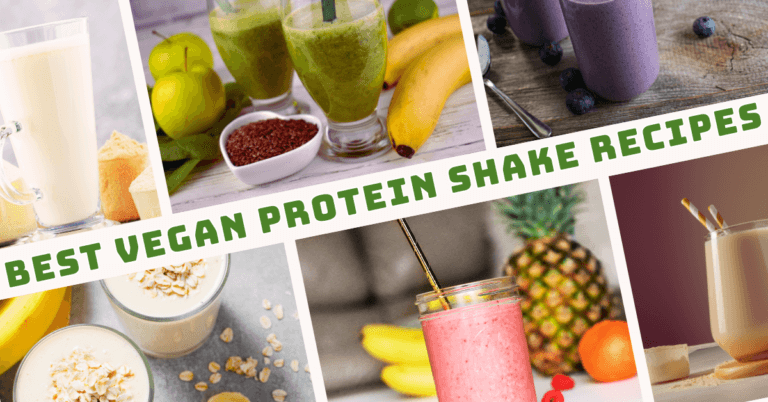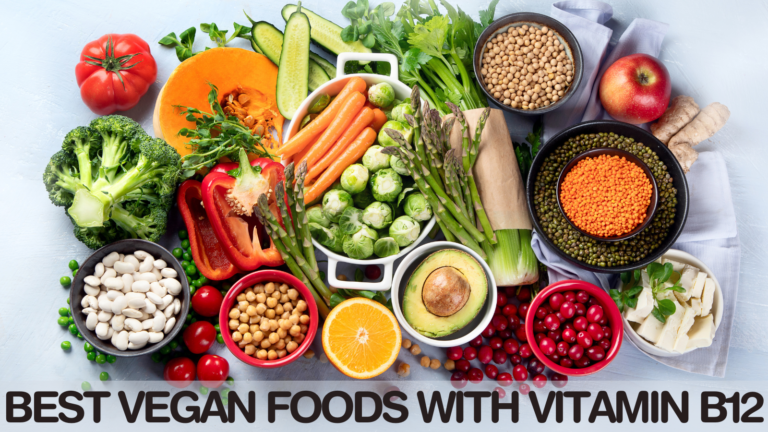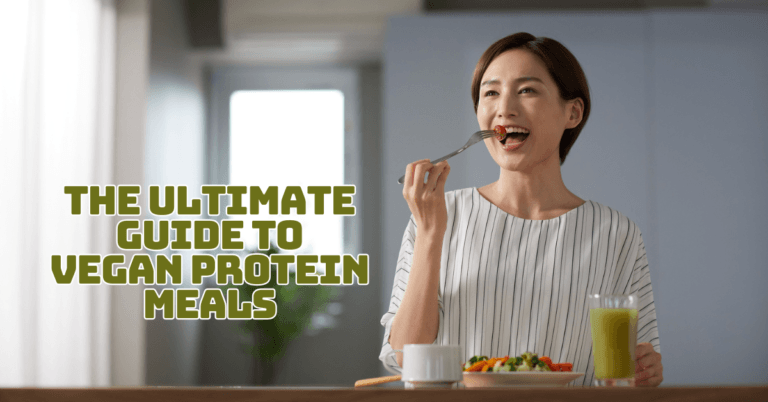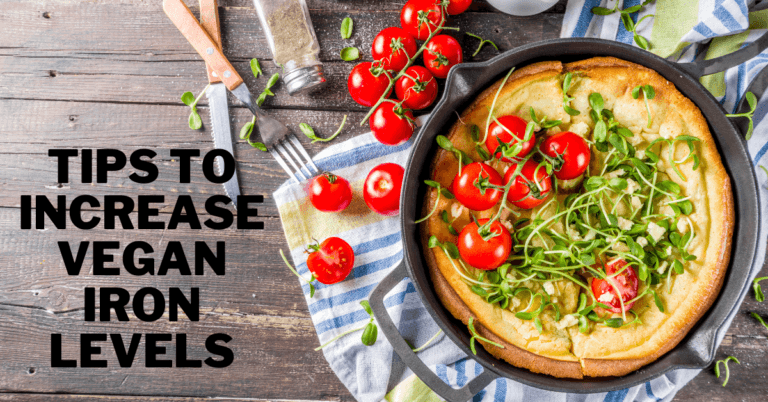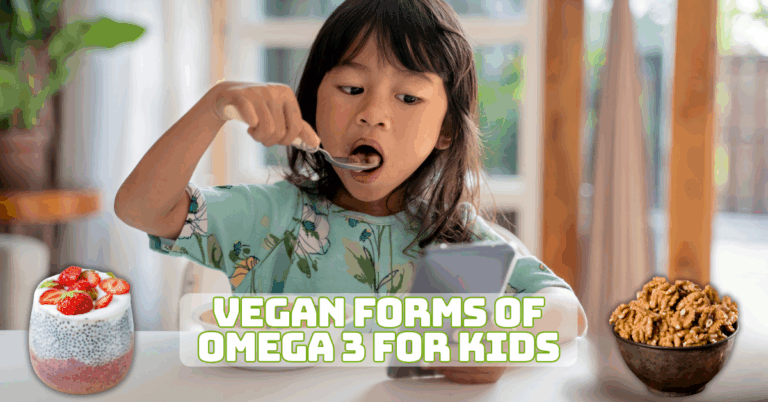Best Vegan Sources Of Iron
Best Vegan Sources Of Iron
In the tapestry of human health, iron stands as a crucial mineral, an elemental force that powers our bodies and fuels our vitality.
Traditionally associated with animal products, the journey to discover the best vegan sources of iron unveils a captivating narrative of plant-powered nourishment.
From vibrant greens that sway in the breeze to the humble treasures of legumes and seeds, the world of plant-based nutrition offers a rich and diverse array of iron-rich foods that resonate with ethical dietary choices and optimal well-being.
Join us on this exploratory voyage as we delve into plant-based iron sources, uncovering a symphony of flavours, textures, and nutritional benefits.
Whether you're a seasoned vegan or simply curious about embracing more plant-centric choices, this article is a guide to harnessing the power of plant-based iron, fueling your body, and nurturing your commitment to a compassionate lifestyle.
Step into a world where nutrient-rich foods and ethical values intertwine, forging a path to vitality that resonates with your health and heart.
Exploring Vegan Sources Of Iron
Iron is an essential mineral that is crucial in various bodily functions, including oxygen transport and energy production.
Obtaining sufficient iron from plant-based sources is vital for individuals following a vegan lifestyle.
Here are some of the best vegan sources of iron, along with details about their iron content and benefits:
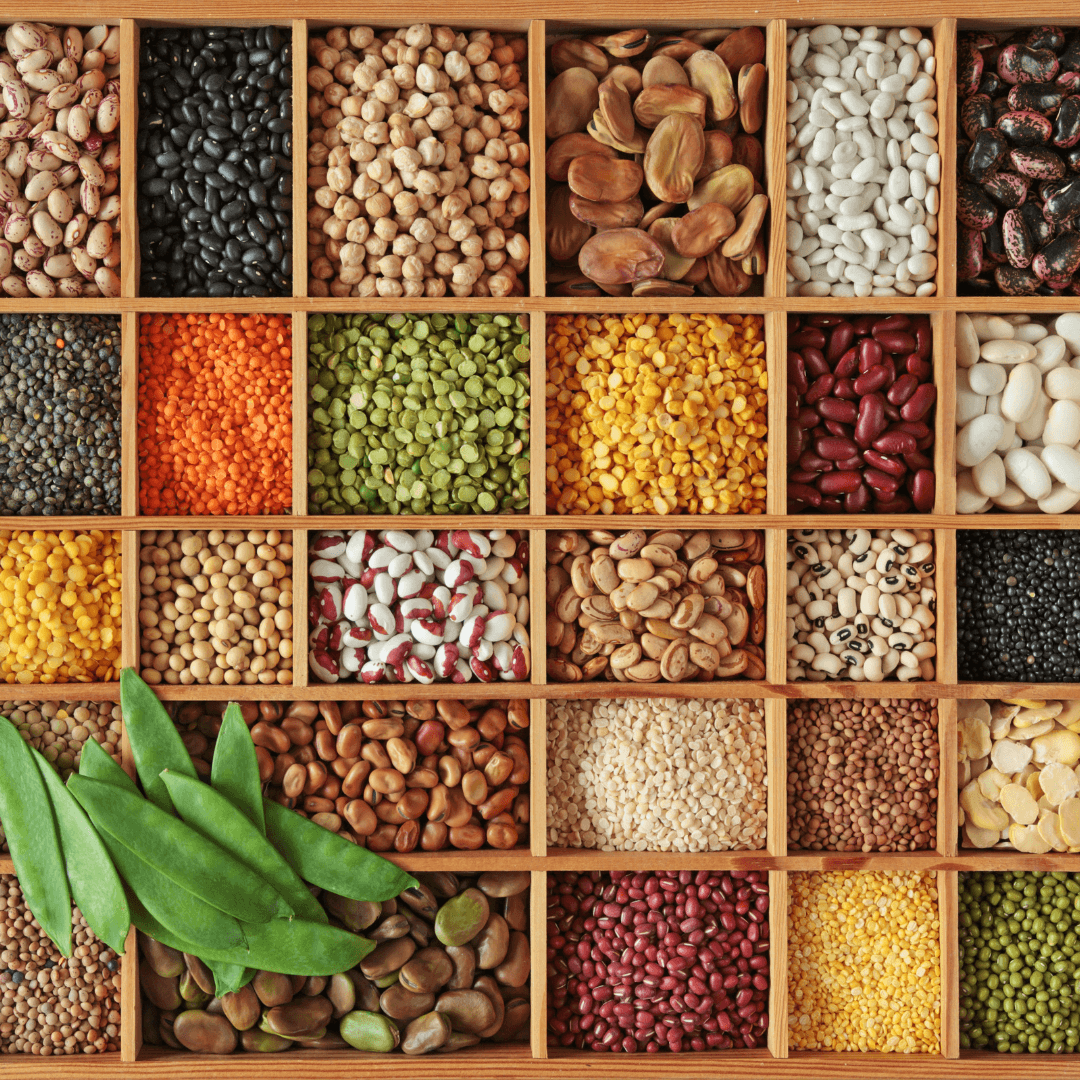
1. Legumes Provide Non-Heme Iron
Legumes, including lentils, chickpeas, black beans, and kidney beans, stand out as nutritional powerhouses that provide a substantial amount of non-heme iron and offer a well-rounded package of essential nutrients.
These plant-based gems boast a dual advantage, delivering iron, commendable protein, and dietary fiber.
Iron, a cornerstone of hemoglobin production, ensures efficient oxygen transportation and energy metabolism, while protein supports tissue repair and muscle development.
The fiber promotes digestive health, aids in managing blood sugar levels, and fosters a prolonged feeling of fullness, contributing to weight management.
Moreover, the complex carbohydrate composition of legumes leads to a gradual release of energy, sustaining vitality throughout the day.
The versatility of legumes shines through in various culinary creations, from hearty soups and stews to salads and dips, making them an accessible and delectable means to elevate your iron intake.
By regularly incorporating legumes into your diet, you not only bolster your iron levels but also reap the rewards of a nutrient-rich profile that fortifies overall health and well-being.
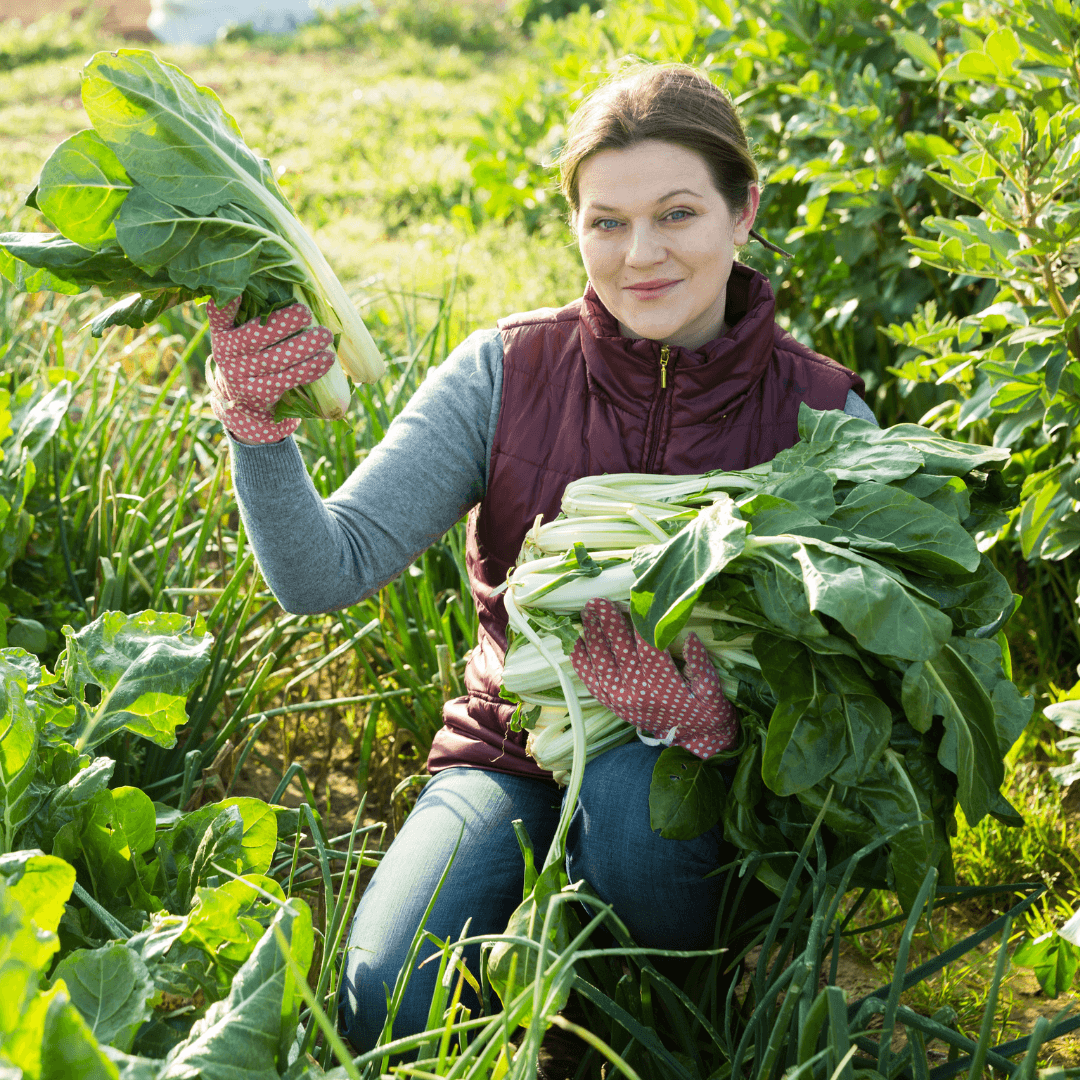
2. Leafy Greens Contain Iron
Leafy greens, such as spinach, kale, Swiss chard, and collard greens, showcase their nutritional prowess by offering an array of essential nutrients, including iron.
Although the iron content in these leafy greens is of the non-heme variety, which is not as readily absorbed as heme iron from animal sources, their abundance of other health-promoting elements should not be underestimated.
Packed with vitamins, minerals, and antioxidants, these verdant wonders contribute to overall well-being.
While the absorption of non-heme iron might pose a challenge, an effective strategy involves coupling these greens with vitamin C-rich foods.
Vitamin C enhances iron absorption by transforming non-heme iron into a more absorbable form within the body.
Pairing leafy greens with citrus fruits like oranges, strawberries, or bell peppers can unlock this synergy, optimizing iron uptake.
Incorporating these vibrant greens into your diet offers many benefits beyond iron, including immune support, bone health, and cellular protection.
Whether in salads, smoothies, or sautés, these leafy companions showcase their ability to fortify your nutrient intake while showcasing a diverse and delectable range of flavours.
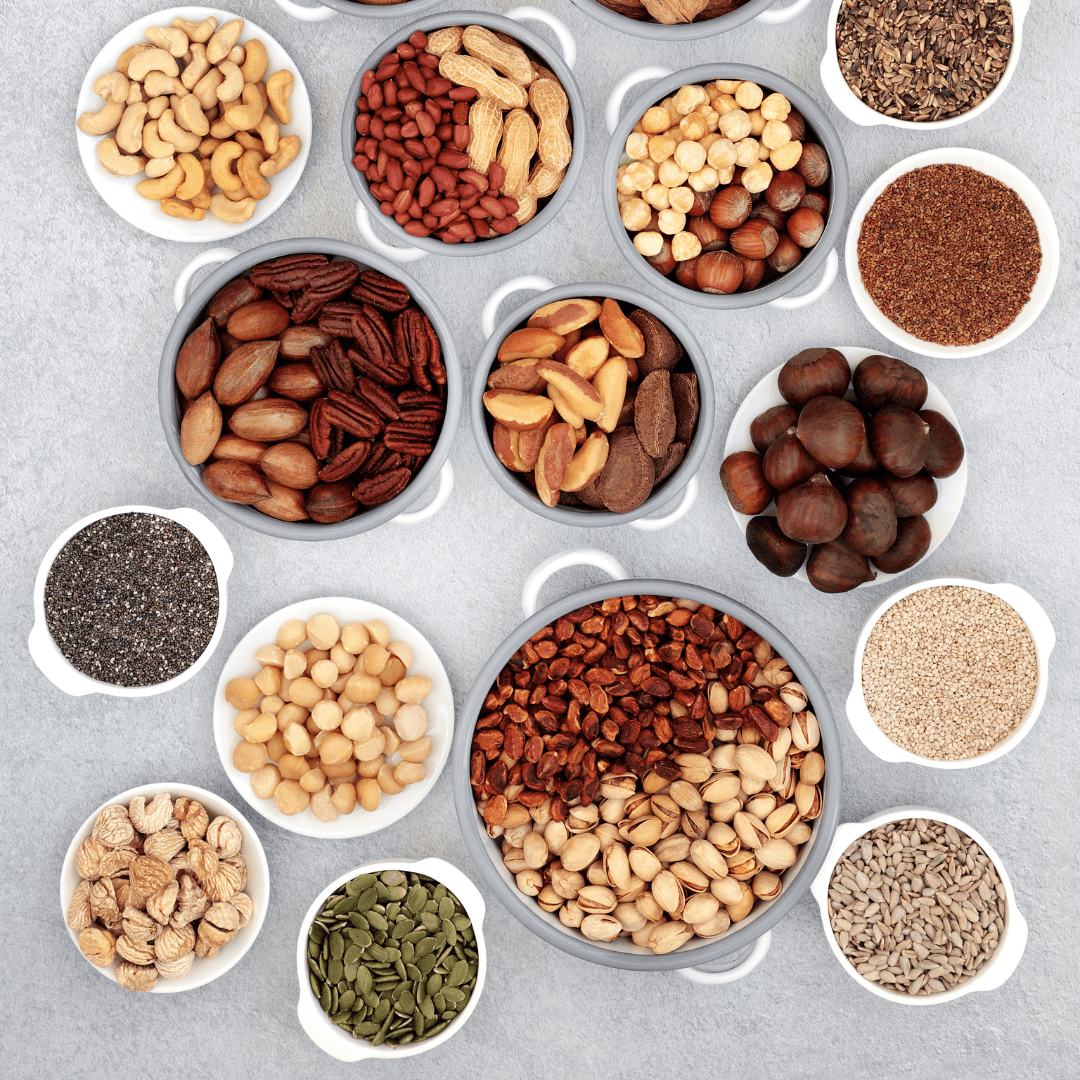
3. Nuts And Seeds Are A Potent Source Of Iron
Nuts and seeds, such as pumpkin seeds, sesame seeds, hemp seeds, and cashews, shine as compact yet potent sources of iron, offering a satisfying crunch and abundant nutritional benefits.
These small but mighty packages are rich in iron, a cornerstone mineral for oxygen transport and energy production, and provide a wealth of other essential nutrients.
From heart-healthy fats and protein to vitamins and minerals like magnesium and zinc, nuts and seeds contribute to overall health and vitality. Beyond their nutritional prowess, these treasures are exceptionally versatile.
They can be enjoyed as convenient and nutrient-dense snacks, providing a quick energy boost between meals.
Alternatively, they can be seamlessly incorporated into various dishes, from salads and yogurt parfaits to smoothies and stir-fries, imparting flavour and nutritional value.
For those seeking a plant-based iron boost, these nuts and seeds offer a delightful and wholesome way to elevate your daily intake while savouring a delectable array of textures and tastes.
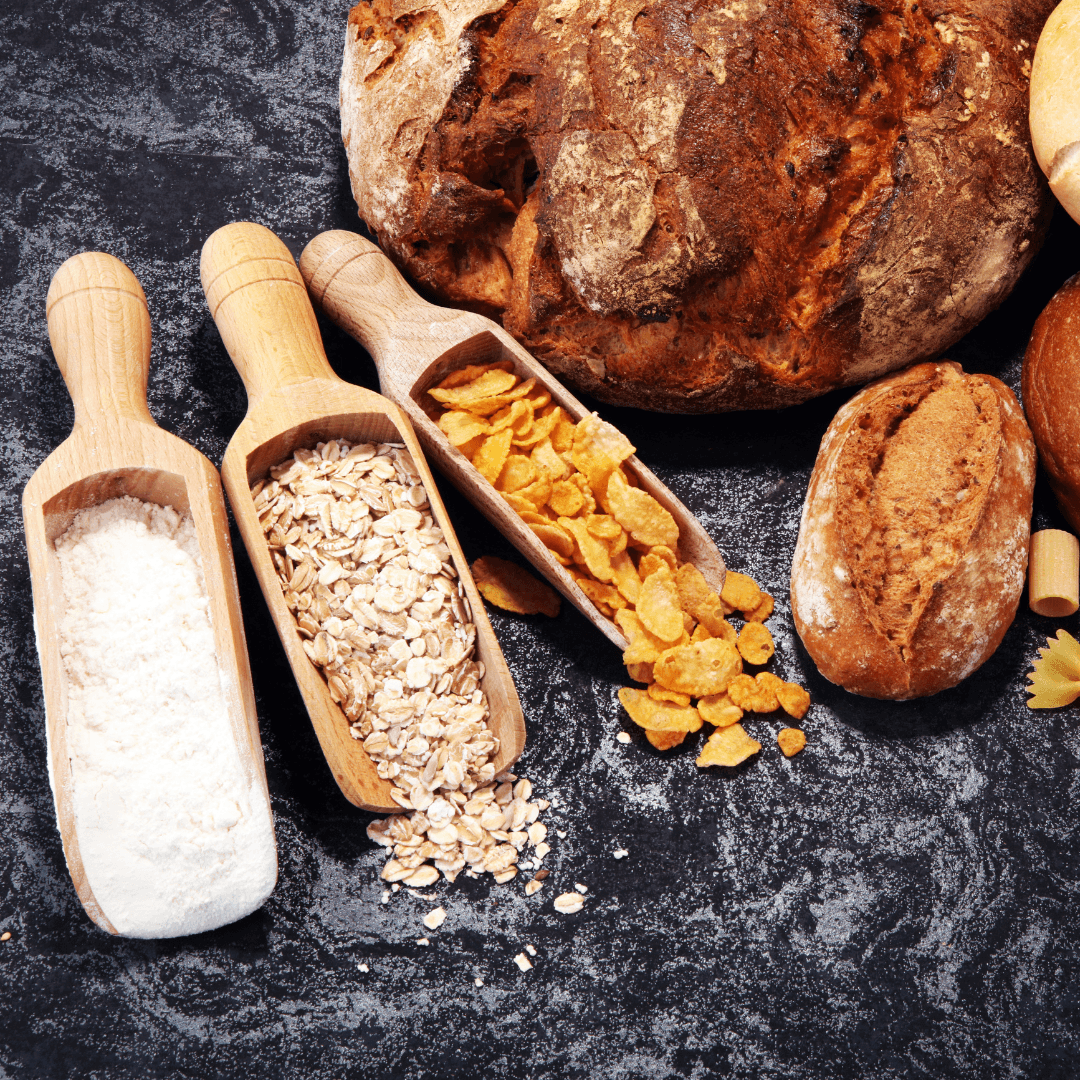
4. Whole Grains
Whole grains, including quinoa, fortified cereals, and whole wheat products, are valuable allies in boosting your iron intake while providing a hearty dose of essential nutrients.
Quinoa, often called a “superfood,” delivers iron and offers a complete protein profile, making it a standout choice for plant-based diets.
Fortified cereals, on the other hand, are intentionally enriched with a range of vitamins and minerals, including iron, to provide a reliable and accessible source of nutrition.
Whole wheat products, such as bread and pasta, contribute iron and dietary fiber, supporting digestive health and sustaining energy.
Choosing fortified whole grain products offers a strategic advantage, as combining non-heme iron and other nutrients can enhance iron absorption.
This is particularly relevant for those seeking to optimize their iron intake from plant-based sources.
Incorporating these wholesome grains into your meals nourishes your body with iron and delight in various textures and flavours, contributing to a well-rounded and vibrant dietary experience.
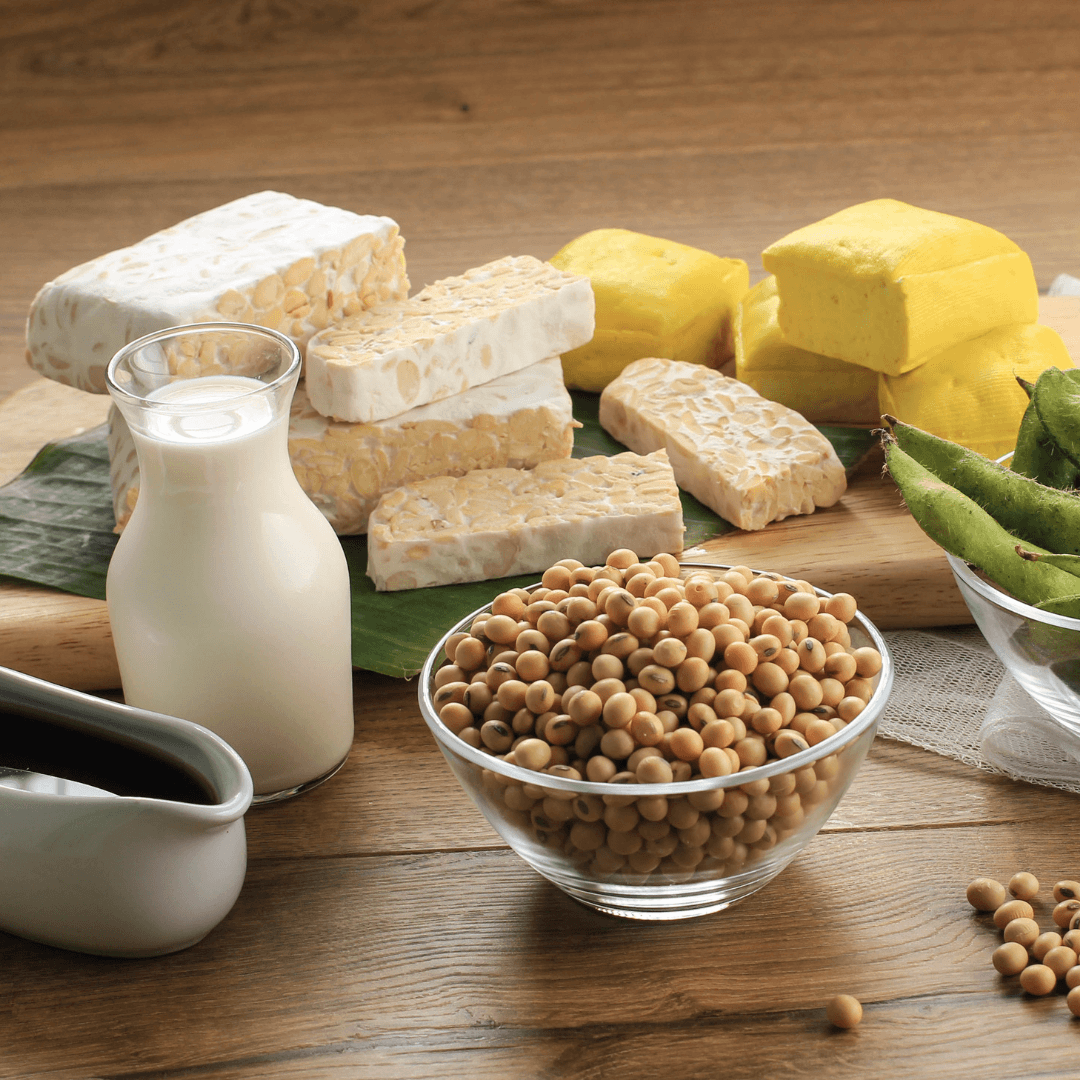
5. Tofu And Tempeh
Tofu and tempeh, revered staples in plant-based diets, emerge as nutritional powerhouses that seamlessly integrate protein and iron into your culinary repertoire.
Derived from soybeans, these versatile creations showcase their prowess by offering a substantial protein punch and notable iron content.
With its delicate texture and ability to absorb flavours, tofu becomes a canvas for culinary creativity, effortlessly elevating salads, stir-fries, and desserts.
On the other hand, Tempeh boasts a firmer texture and nutty flavour, making it a compelling candidate for sandwiches, wraps, and hearty mains.
Beyond their protein and iron attributes, these soy-based marvels are rich in essential amino acids, supporting muscle growth, tissue repair, and overall well-being.
Combined with iron-enhancing strategies like pairing with vitamin C-rich foods, tofu and tempeh contribute to optimized iron absorption.
Incorporating these adaptable ingredients into your diet diversifies your protein sources and empowers you with a convenient and delicious means of boosting your iron intake.
Whether you're a tofu enthusiast, a tempeh devotee, or simply exploring the world of plant-based cuisine, these soy-based gems effortlessly marry nutrition with culinary pleasure, enhancing your overall dietary journey.
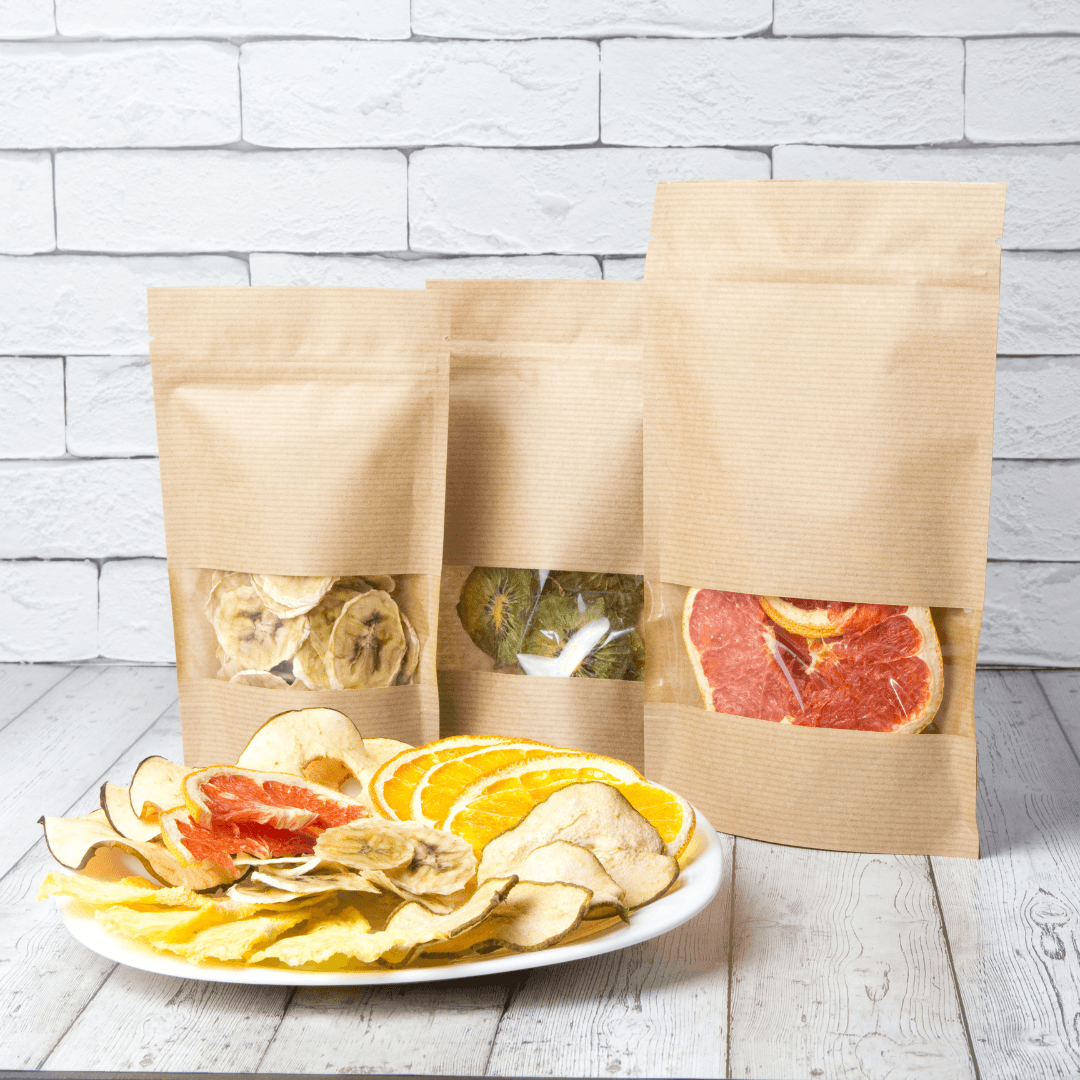
6. Dried Fruits
Dried fruits, including apricots, raisins, and figs, emerge as concentrated iron reservoirs, offering a delectable sweetness and a valuable nutritional boost.
Through dehydration, these fruits retain their essential nutrients, including iron, in a compact and convenient form.
Apricots deliver a notable dose of iron while also providing dietary fiber and antioxidants. Raisins are rich in iron and offer a satisfying chewiness that complements sweet and savoury foods.
With their luscious and succulent profile, Figs unveil a delightful amalgamation of iron, fiber, and potassium.
Incorporating these dried fruits into your diet can be effortless, whether enjoyed as standalone snacks, added to trail mixes, blended into smoothies, or sprinkled over yogurt or oatmeal.
Their natural sweetness is a healthier alternative to sugary treats, while their iron content contributes to energy metabolism and oxygen transport.
It's worth noting that while dried fruits can be a convenient source of iron, they are also calorie-dense, so portion control is essential.
By embracing these flavourful and iron-rich dried fruits, you not only enhance the nutritional profile of your meals but also infuse your culinary journey with a touch of natural indulgence.
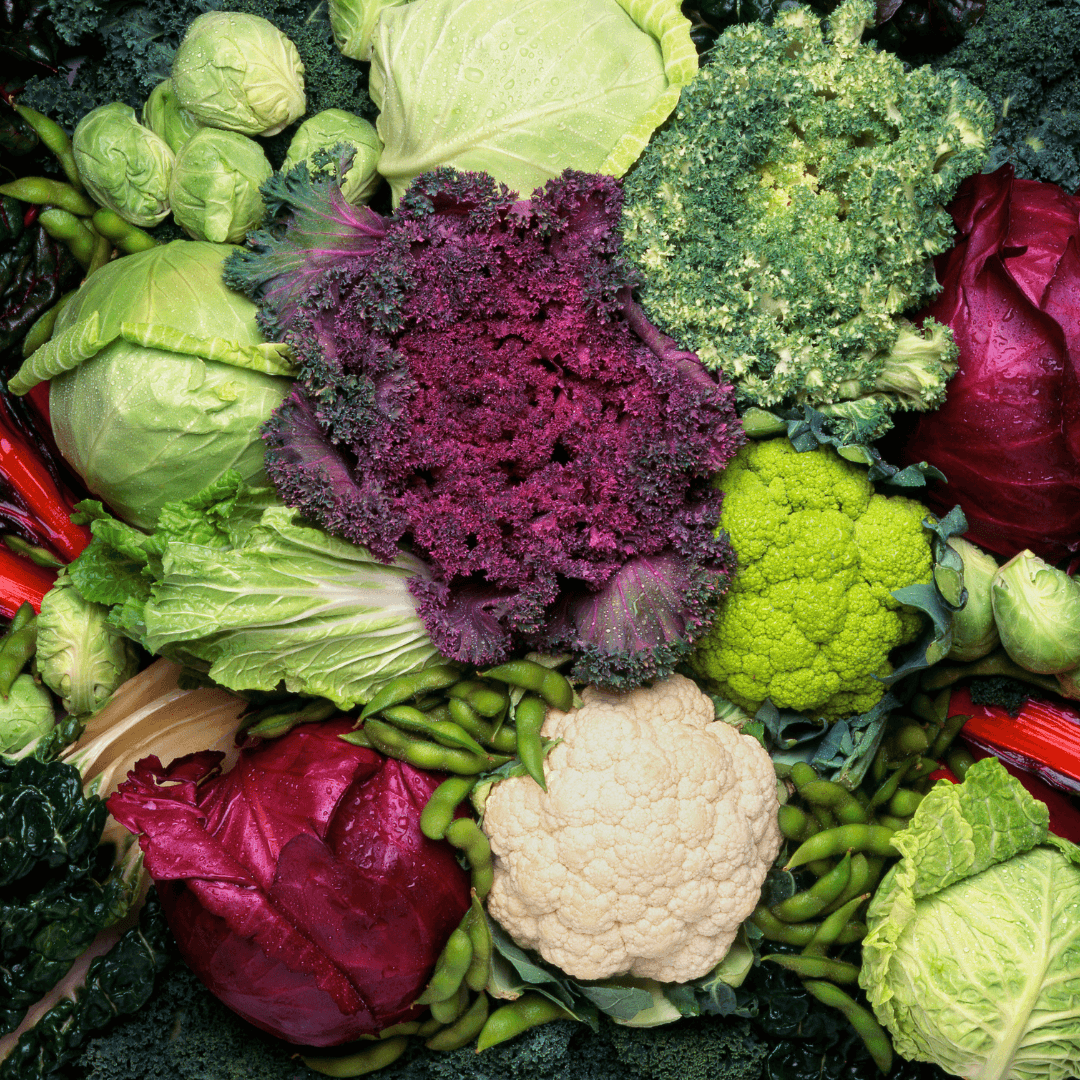
7. Cruciferous Vegetables
Cruciferous vegetables, including broccoli, Brussels sprouts, and cabbage, are formidable contenders in the quest for iron-rich plant-based foods.
Beyond their distinct textures and flavours, these veggies reveal a treasure trove of nutrients, with iron a notable highlight.
While their iron content may not rival other sources, their contribution remains significant, particularly when combined with strategic dietary choices.
These cruciferous champions are not only sources of iron but also brim with vitamins, including vitamin C, which enhances iron absorption.
Their fibre-rich nature supports digestive health, aids in satiety, and promotes a balanced gut microbiome.
Additionally, cruciferous vegetables contain various phytonutrients and antioxidants that confer various health benefits, including potential anti-inflammatory properties and cellular protection.
Roasted Brussels sprouts, steamed broccoli, or a crisp cabbage slaw can be integral to meals, adding flavour and nutritional value.
By incorporating these cruciferous delights into your diet, you harness a symphony of nutrients contributing to your iron intake and overall health and vitality.
As you savour the unique textures and taste profiles of broccoli, Brussels sprouts, and cabbage, you nourish your body with a medley of essential elements, forging a path toward comprehensive well-being.
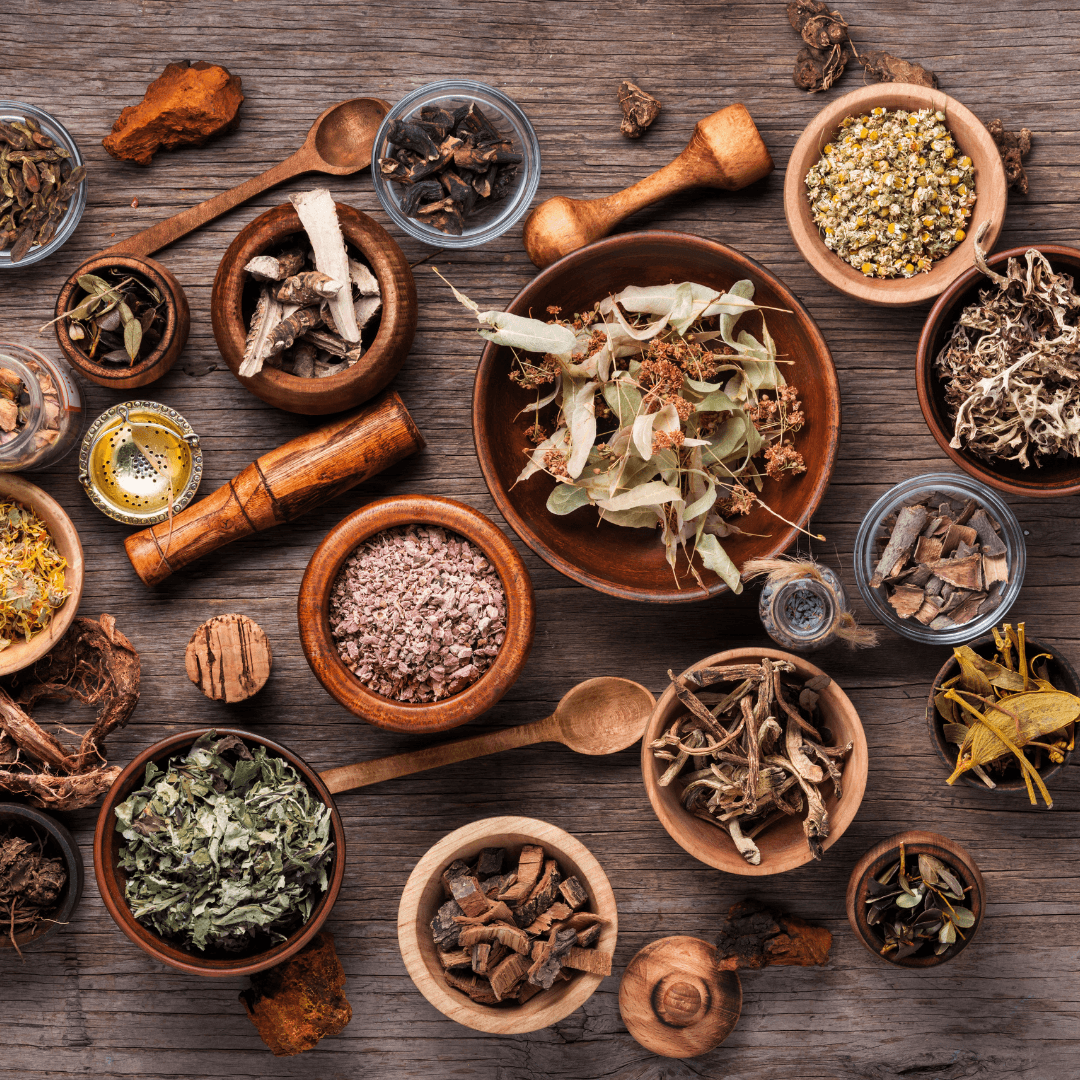
8. Dried Herbs
Dried herbs, particularly notable varieties like thyme and parsley, emerge as secret nutritional gems that infuse your dishes with flavour and a touch of iron.
While their iron content might not be as prominent as other sources, their ability to enhance the overall nutritional profile of your meals is undeniable.
With its aromatic and earthy notes, Thyme contains a trace of iron that contributes to energy metabolism and overall well-being.
Parsley, renowned for its vibrant green hue, adds freshness to your dishes and introduces a subtle iron boost.
These dried herbs are not only sources of iron but also pack a punch of antioxidants, vitamins, and minerals that contribute to immune support, digestion, and cellular health.
Sprinkling dried thyme over roasted vegetables or incorporating dried parsley into marinades and sauces adds depth to your culinary creations while enriching them with a hint of iron.
Moreover, these herbs can be a valuable alternative for flavour enhancement, allowing you to reduce sodium intake.
Embrace the culinary versatility of dried thyme and parsley as they exemplify the art of subtly infusing your meals with taste and nourishment, ultimately elevating your dining experience and nutritional intake.
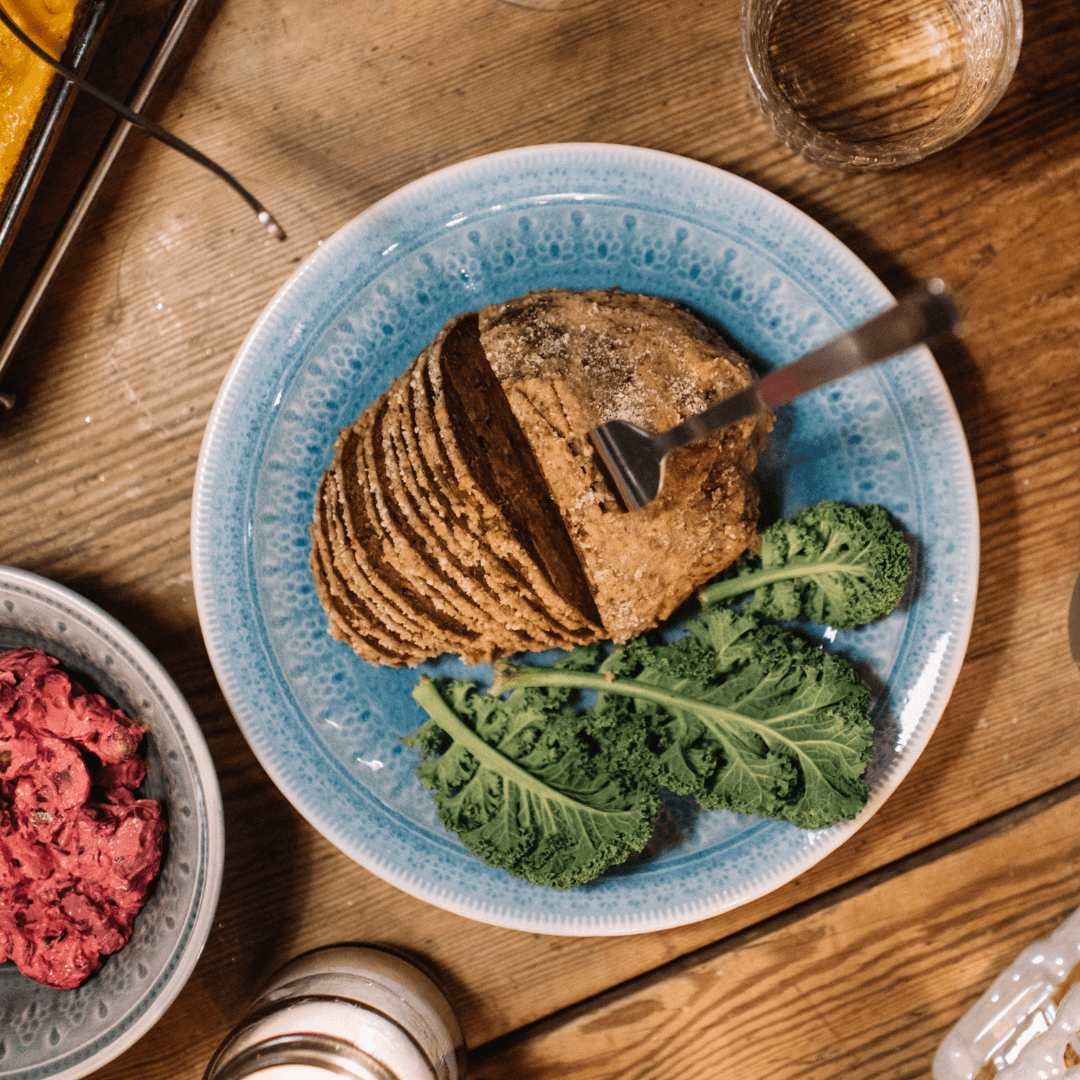
9. Vegan Meat Alternatives
Vegan meat alternatives, a burgeoning category in plant-based cuisine, not only emulate the texture and taste of traditional meats but also offer a strategic means of boosting your iron intake.
These innovative creations, such as tofu-based sausages or seitan, often come fortified with iron, adding a valuable nutrient to your diet.
While their iron content varies, deliberate fortification ensures a reliable source of this essential mineral.
Tofu, derived from soybeans, provides protein and iron, making it a versatile canvas for crafting various delectable dishes.
Seitan, known for its meat-like texture, is primarily made from wheat gluten and boasts a commendable iron content that contributes to energy production and oxygen transport.
By incorporating these vegan meat alternatives into your meals, you explore a spectrum of flavours and textures and enhance your iron intake conveniently and enjoyably.
Whether grilled, sautéed, or incorporated into stir-fries and sandwiches, these plant-based creations marry culinary ingenuity with nutritional savvy, epitomizing the dynamic potential of vegan cuisine in meeting your dietary needs.
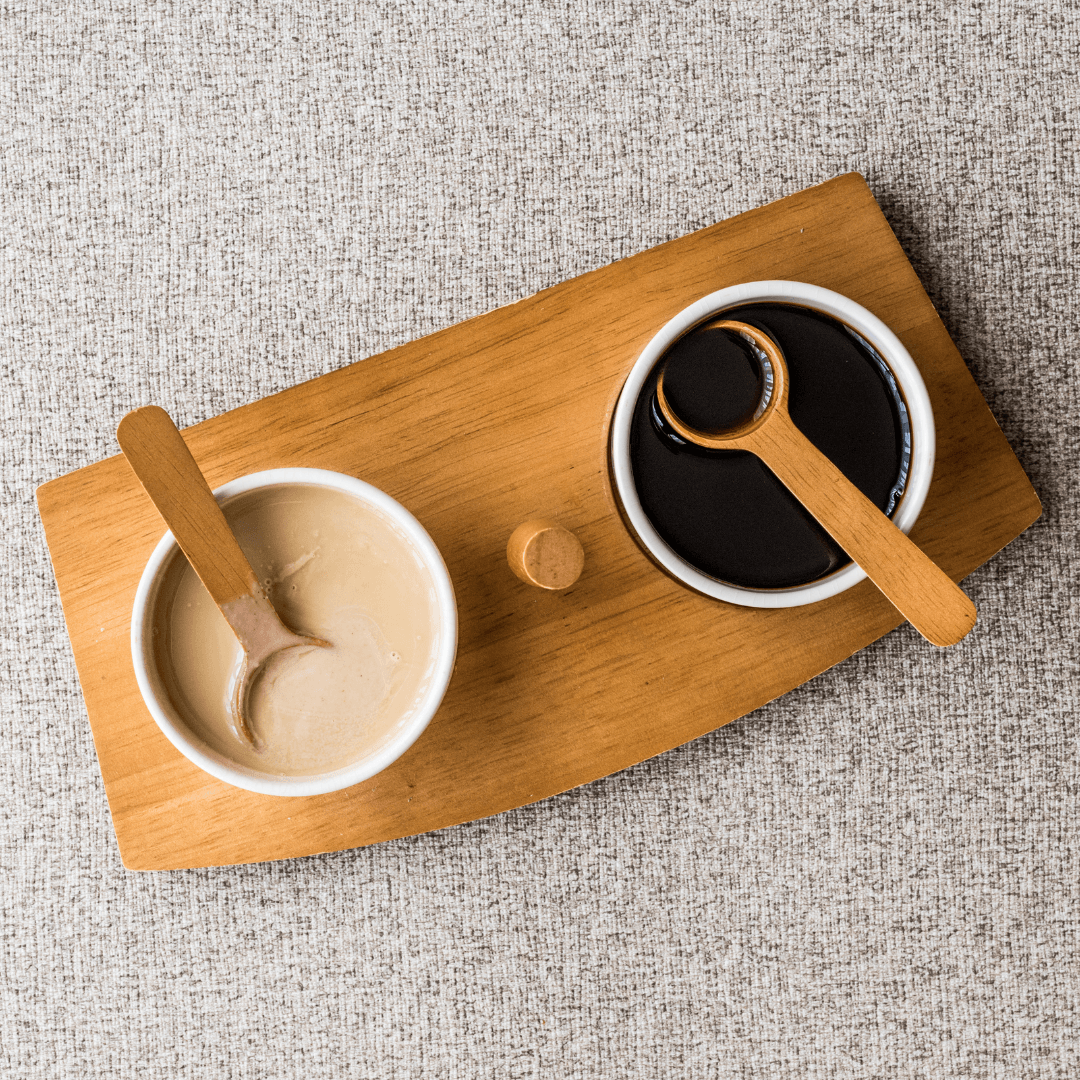
10. Molasses
Molasses, an enchanting byproduct of sugar production, imparts a rich, caramel-like sweetness to dishes and unveils its hidden treasure of iron content.
While blackstrap molasses takes the spotlight for its remarkable iron concentration, other varieties harbour this essential mineral, albeit in varying amounts.
Molasses is a noteworthy example of nature's ability to distill nutrients into flavorful elixirs. Beyond iron, molasses brings forth a medley of vitamins and minerals, including calcium, magnesium, and potassium.
These attributes render molasses a versatile ingredient, lending depth and complexity to baked goods, marinades, sauces, and beverages.
The robust flavour profile of molasses complements a range of dishes and contributes to its potential health benefits.
Its subtle iron content aligns seamlessly with culinary creativity, enabling you to enhance your iron intake while indulging in the enchanting allure of its unique flavour.
Whether drizzled over pancakes, incorporated into barbecue sauces, or blended into smoothies, molasses is an enchanting reminder of nature's bounty, effortlessly enriching your culinary endeavours while contributing to your iron requirements.
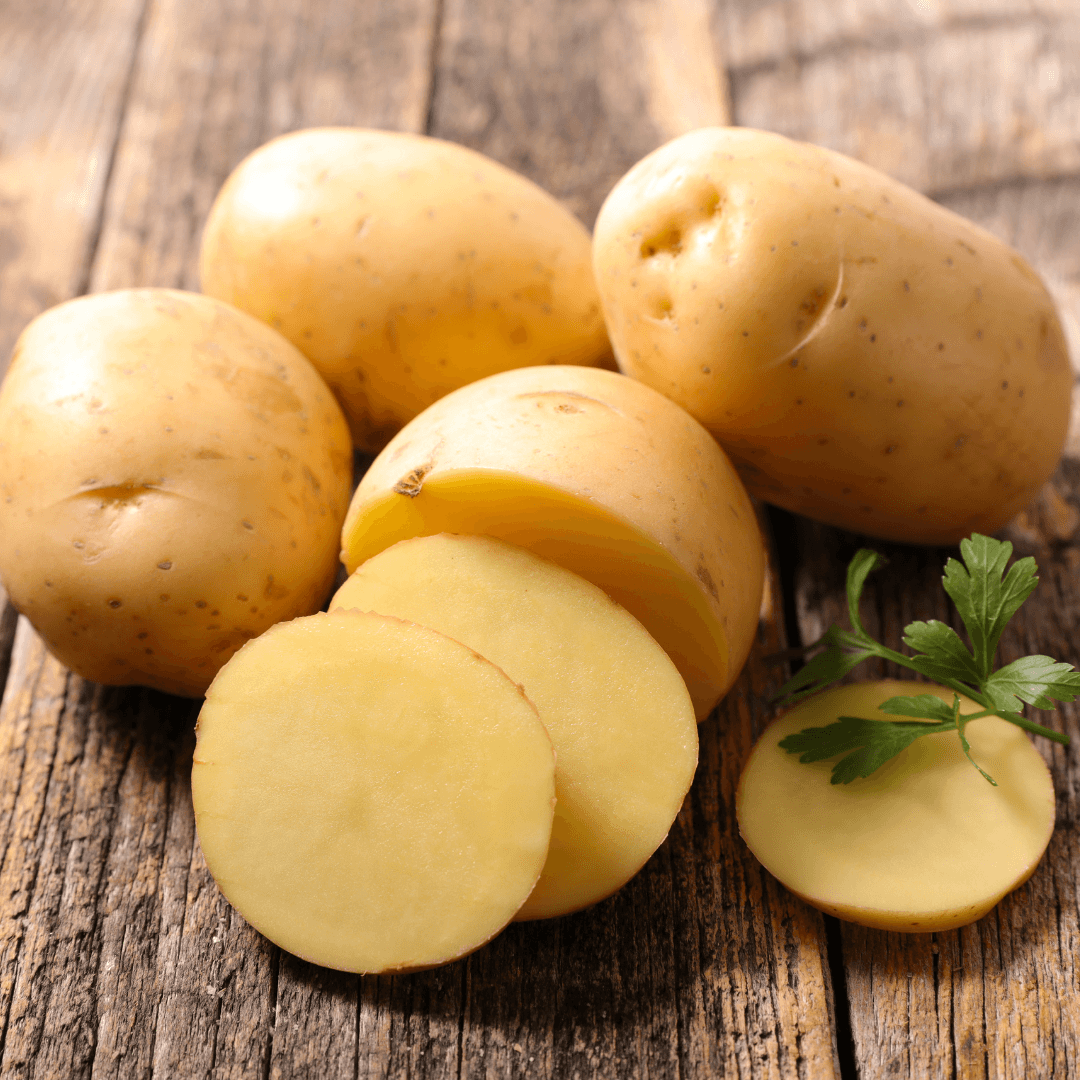
11. Potatoes
Potatoes, humble and versatile, offer a delightful surprise as a moderate source of iron, particularly when consumed with their nutrient-rich skin intact.
While they might not be the first food that comes to mind for iron content, potatoes contribute to your daily intake.
The potato's skin houses a noteworthy portion of its iron content, adding to the roster of essential nutrients it provides.
Beyond iron, potatoes are a reliable source of potassium, vitamin C, and dietary fiber, promoting heart health, immune function, and digestive regularity.
Whether baked to crispy perfection, boiled to tender bliss, or incorporated into various dishes, potatoes offer a canvas for culinary exploration.
From hearty stews and casseroles to comforting mashed potatoes, their mild flavour and pleasing texture complement a variety of cuisines.
Embracing potatoes as part of your diet not only introduces a comforting and satisfying element to your meals but also subtly bolsters your iron intake, contributing to your overall nutritional well-being.
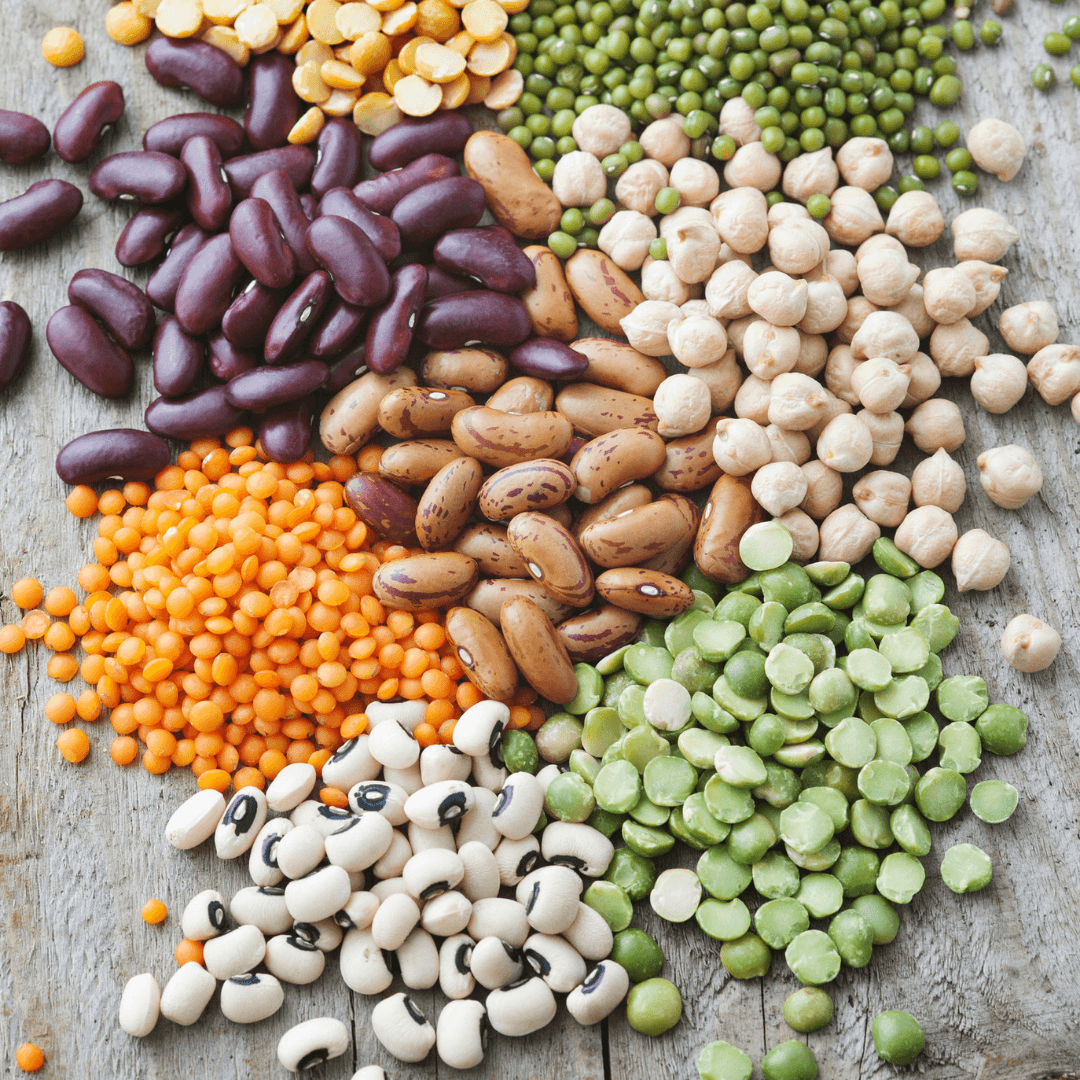
12. Dried Beans
Dried beans, including kidney beans, black-eyed peas, and pinto beans, emerge as robust iron reservoirs, embodying both nutritional density and culinary versatility.
These leguminous powerhouses boast a considerable iron content, bolstering energy production, oxygen transport, and overall vitality.
Kidney beans, recognized for their distinct shape and vibrant colour, offer a substantial dose of iron alongside a spectrum of essential nutrients like protein and fiber.
With their subtle flavour and tender texture, black-eyed peas contribute iron and manganese, minerals in bone health and antioxidant defence.
Pinto beans, cherished for their creamy texture and earthy taste, lend an iron-rich essence to dishes while furnishing an array of vitamins and minerals.
Dried beans seamlessly integrate into various culinary creations, from hearty soups and stews that warm the soul to vibrant salads that refresh the palate.
Whether simmered into a savoury chilli or incorporated into a medley of Mediterranean-inspired dishes, dried beans promise to elevate flavour and nutritional value.
By embracing these legumes, you embark on a journey of nourishment, relishing the fusion of taste and health benefits they bring to your table.
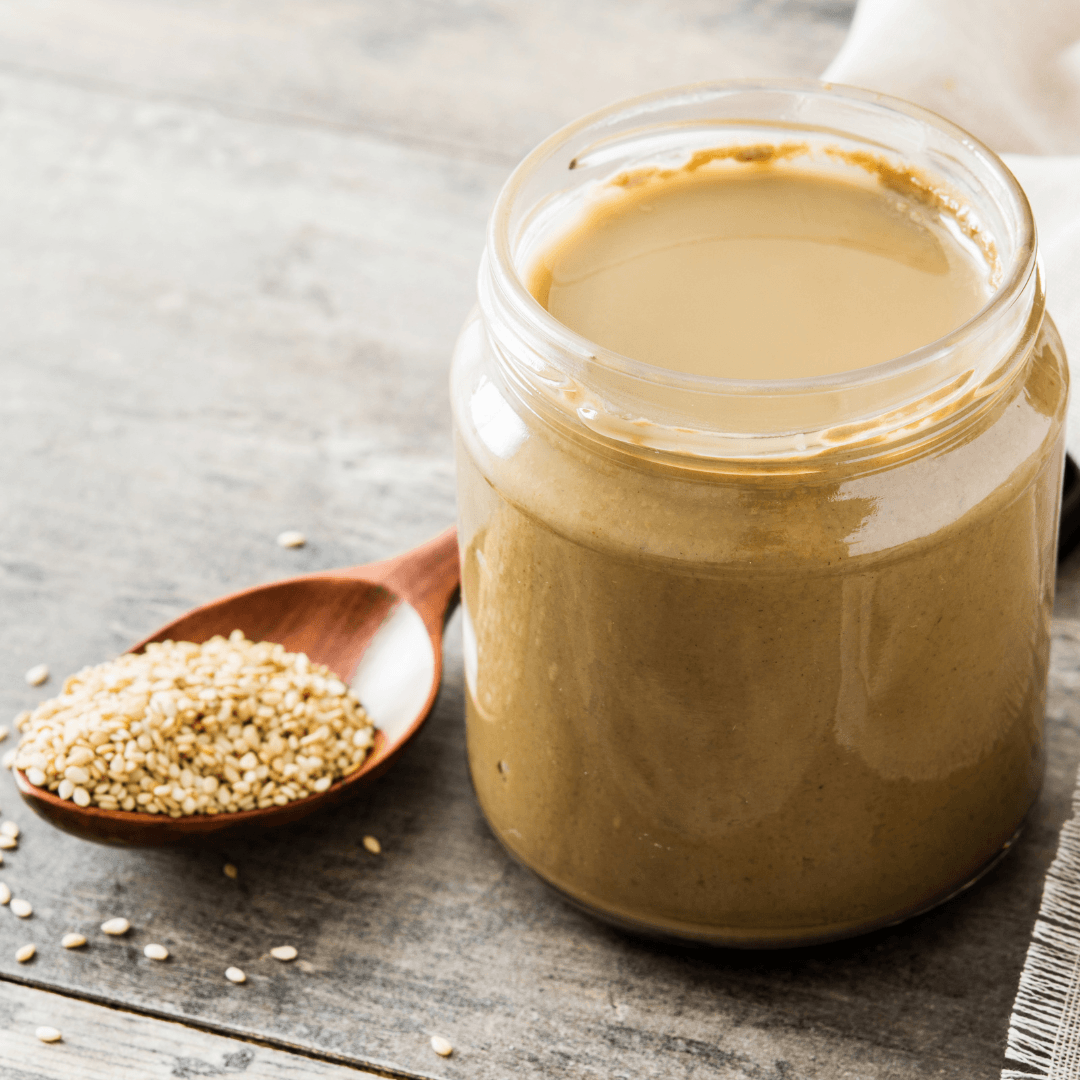
13. Tahini
Tahini, a velvety paste hailing from sesame seeds, stands as a captivating culinary gem that not only tantalizes the taste buds but also enriches your diet with commendable iron content.
Beyond its iron contribution, tahini's nutritional profile boasts a plethora of virtues, including protein, healthy fats, and a medley of vitamins and minerals.
Tahini's iron content reinforces the body's capacity for oxygen transport and energy production, while its wealth of nutrients supports a range of bodily functions.
However, tahini is not merely a nutrient powerhouse; its creamy texture and nutty flavour impart a captivating dimension to dishes.
Whether drizzled over salads, swirled into hummus, or crafted into luscious dressings and sauces, tahini elevates flavours with a delightful touch.
Moreover, tahini's versatility extends beyond savoury creations, seamlessly transitioning to desserts.
Its innate richness and nuttiness lend themselves effortlessly to confections, from decadent chocolate tahini brownies to velvety tahini-infused smoothie bowls.
By embracing tahini as a staple in your culinary repertoire, you unlock a symphony of taste and nourishment, a testament to how a humble paste can transcend nutritional significance and evolve into a culinary masterpiece that enhances the palate and overall well-being.
Conclusion
In conclusion, the world of plant-based nutrition offers a bountiful array of iron-rich sources that prove unequivocally that meeting your iron needs without animal products is feasible but also delectable and versatile.
Embracing dried fruits, whole grains, and the unique flavours of tahini and molasses seamlessly integrates iron into your culinary repertoire.
As you craft your meals, consider combining these sources with vitamin C-rich foods, embracing wholesome lifestyle practices, and seeking professional guidance to optimize iron absorption.
The journey through these diverse vegan sources of iron underscores the notion that a plant-powered diet sustains your iron needs and nurtures your overall well-being, demonstrating the remarkable potential of plant-based nutrition to cultivate a vibrant and thriving life.
I trust you enjoyed reading the article about the Best Vegan Sources Of Iron. Please stay tuned. More blog posts will be posted very shortly.
JeannetteZ
>>>Please click here to read my Vegan Travel Guides To World Destinations<<<
>>>Want To Learn How To Create Delicious, Cruelty-Free, Healthy AND 100% Vegan Meals? Try These Awesome Vegan Cooking Courses With A Free 7-DAY MEMBERSHIP<<<
Your Opinion Is Important To Me
Do you have thoughts, ideas, or questions? I would love to hear from you. Please leave me your questions, experiences, and remarks about this article on the Best Vegan Sources Of Iron in the comments section below. You can also email me at Jeannette@LivingTheVeganLifestyle.org.
Disclosure
This post may contain affiliate links. I earn from qualifying purchases as an Amazon Associate and other affiliate programs. Please read my full disclosure.
Here are the links to some of my favourite articles:
A Brief History Of Veganism – Know Your Roots

